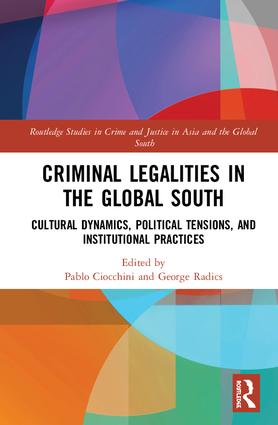“First world problems” in the “third world”?
September 8, 2021

Singapore has long pursued neoliberal economic policies through international trade, cementing itself as one of the most globalized nations in the world. At the same time, the nation-state remains politically and socially conservative, prioritizing economic and communal well-being over individual political rights. Therein lies a tension between these ostensibly contradictory positions.
In “‘First world problems’ in the ‘third world’?” (Criminal Legalities in the Global South, 2020), Dr. George Radics (NUS Sociology) notes that as a result of these prioritizations, we only observe incremental progressive social and cultural developments when the country’s financial well-being is at stake. Dr. Radics points out that the rights of Singapore’s LGBT community, in particular, shift in accordance with the political and economic conditions of Singapore. Dr. Radics outlines the nation-state’s complex relationship with LGBT rights and how its developmental history serves as a case study worth examining.
Dr. Radics notes that stable and sustained macroeconomic growth was perceived as fundamental to Singapore’s survival after its separation from Malaysia on 9th August 1965. As a result, the Singapore government prioritized macroeconomic growth over political freedoms. At the same time, the government also pursued social and political conditions that would promote its larger goal of rapid economic growth. The government adopted an iron-fisted approach towards the management of its social and political landscape. Dr. Radics cites statutes like the Religious Harmony Act, Internal Security Act, and Societies Act as tools the government has at its disposal to restrict civil liberties and eliminate political dissent. Originally intended to govern the colony, British laws were adopted and modified to limit political freedoms. Consequently, the rights of the LGBT community in Singapore were rarely demanded.
Dr. Radics points out that the government refuses to express support for LGBT groups in the country. He argues that the LGBT community is allowed to exist within a narrowly defined political space in Singapore, the boundaries of which are delineated by the state’s discourse of “Asian Values.” According to Dr. Radics, “Asian Values” was the government’s response to perceived Western moral degradation that arose from the general increase in the socioeconomic status of Singaporeans. Such discourse has been effective in justifying Section 377A and exercising control over Pink Dot SG, an annual event organized to express support for the LGBT community in Singapore.
Dr. Radics concludes by pointing out that tension arises from Singapore’s traditional “Asian Values” and its reputation as a global hub in a rapidly changing global environment. He raises the sustained success of Pink Dot SG and the judicial challenges to 377A as evidence of this tension within the nation-state. In a broader scope, the case of Singapore demonstrates that in the Global South, economic progress does not guarantee that resolving social and political issues is a straightforward process.
